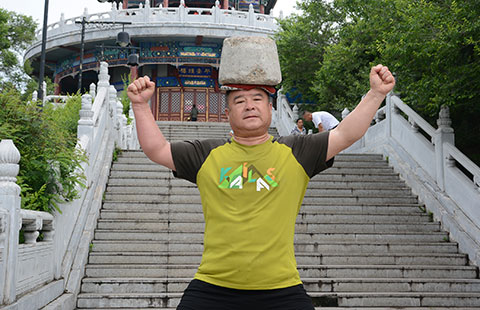China releases search engine regulation following Baidu scandal
(Xinhua) Updated: 2016-06-25 14:23BEIJING - China's Internet regulator publicized a regulation Saturday on search engines, ordering search providers to ensure objective, fair and authoritative search results.
Search providers must improve censorship and remove any illegal content, according to the regulation released by the Cyberspace Administration of China.
All paid-for search results must be labeled clearly and checks on advertisers should be improved, according to the regulation. There should also be a limit on the number of paid-for results on a single page.
Moreover, the practice of blocking negative content concerning advertisers has been banned.
The regulation came after an investigation into Baidu, which was criticized for influencing the treatment choice of a late cancer patient, Wei Zexi, by presenting misguiding medical information.
Wei, 22, died after undergoing a controversial cancer treatment at a Beijing hospital, which the Wei family found through Baidu search.
"Search service providers should be aware of their social responsibility [...] they must provide objective, fair and authoritative search results to netizens," the CAC was quoted as saying later in a statement.
Paid listing were not distinguishable from normal search results, which could mislead users, the administration said. It has been reported that some medical organizations, which paid for search results, were unqualified or had forged certificates.
"The content of some search results was found to be rumors, pornographic, violent or related to terrorism," according to CAC.
Web directories must have a channel to receive complaints and compensate for any damages caused to users, but the regulation did not elaborate on this aspect.
Earlier this month, CAC asked Baidu to improve its paid-for listings model and to rank the search results mainly according to credibility rather than price-tags.
- Baidu invests 2 billion yuan in filmmaking
- Baidu and Huawei nominated as world's smartest companies
- Baidu maps out new vision for Chinese tourists in Thailand
- Baidu, Tencent and JD.com unveil strategic investment in Bitauto
- Baidu to shut down online forum to fight piracy
- Baidu's lecture tour comes to Wuxi
- Searching for right lane: Baidu hits 'enter' on driverless cars
- Baidu move sees 'robocars' turning a corner
- Baidu, Wuhu city sign deal to test driverless cars in pilot zone
- What you need to know about Jiangsu's deadly tornado
- China faces challenges in tornado forecast: weather authority
- Ruling may 'open Pandora's box'
- Poverty funds facing stiffer supervision
- Guns a growing factor in narcotics enforcement
- China issues disaster alerts
- Ministry orders removal of substandard running tracks
- HK most expensive for expats
- Agency lists tiny hallway for sale: 1.5 million yuan
- Li vows to boost support for real economy










